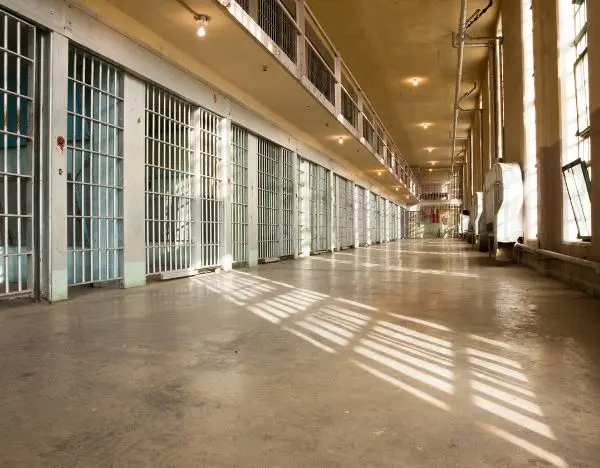
In the intricate web of the criminal justice system, false accusations are a critical concern that can ensnare the innocent in legal battles with severe consequences. At Varghese & Associates, P.C., a premier NYC criminal defense law firm, we understand the gravity of such situations and the paramount importance of knowledgeable legal representation. This blog aims to shed light on the potential legal outcomes of false accusations in New York, offering insights into the complexities involved and the significance of experienced legal defense.
A false accusation refers to an untrue claim made against an individual, alleging that they have engaged in wrongful or criminal behavior when, in fact, they have not. These accusations can be made in various contexts, from personal disputes to formal legal charges. Understanding what constitutes a false accusation is crucial, as it involves the legal and ethical dimensions of truth, evidence, and justice. Here's a breakdown of the key aspects of false accusations:
At the heart of a false accusation is the element of untruthfulness. Facts do not support the accusation and do not reflect the actual events or behaviors that took place. This can occur due to misunderstandings, misinterpretations, or deliberate lies.
False accusations can vary significantly in intent. Some are made maliciously, with the accuser fully aware that the claim is untrue and intends harm to the accused's reputation or life. Others may arise from genuine mistakes or misremembered facts, where the accuser genuinely believes in the validity of their claim but is mistaken.

The length of time an individual might spend in jail pre-trial can vary widely based on several factors, including the jurisdiction, the nature of the charges, bail decisions, and the overall speed of the court system. In New York City, as in other parts of the United States, these factors play a significant role:
The severity of the crime plays a crucial role in determining pre-trial detention. Those accused of more serious crimes are more likely to have higher bail amounts set, which can be more difficult to pay.
New York State's bail reform laws, implemented to prevent people from being jailed pre-trial simply because they cannot afford bail, especially impact non-violent and misdemeanor cases. Judges now have more discretion to release individuals on their own recognizance or under non-monetary conditions for most misdemeanor and non-violent felony charges.
However, for serious charges, bail can still be set, and if the accused cannot post bail, they will remain in jail until their trial or until bail is posted.
Defendants in New York have the right to a speedy trial, which means the prosecution must be ready to proceed within a specific timeframe after the defendant's arraignment. For misdemeanors, this is typically 90 days; for felonies, it can extend to 6 months or more. However, various factors can extend this period, such as legal motions, delays requested by either the defense or prosecution and the court's schedule.
Court backlogs and delays can significantly extend the time someone spends in jail pre-trial. These delays can be due to a variety of reasons, including limited court resources, high case volumes, or unforeseen circumstances like those caused by the COVID-19 pandemic.
In the context of being wrongfully accused and convicted based on false accusations in New York City (NYC), the length of jail or prison time one might face depends entirely on the specific charges and the severity of the alleged crime. There isn't a one-size-fits-all answer because the potential sentence is tied to what the falsely accused individual is purported to have done rather than the fact that the accusation itself was false.
Here's a general overview of how sentencing could look for various levels of crimes in New York State, which also applies to NYC:
Felonies are more serious crimes and carry heavier penalties. New York categorizes felonies from E (least severe) to A (most severe), with varying potential sentences:
Wrongful conviction and exoneration represent critical areas of concern within the criminal justice system, highlighting profound flaws and the potential for systemic reform. A wrongful conviction occurs when an innocent person is found guilty of a crime they did not commit, often due to errors in the legal process, flawed evidence, or systemic biases. Exoneration is when a wrongfully convicted individual is officially cleared of charges, often after new evidence comes to light or previous evidence is re-examined and found unreliable.
The reasons behind wrongful convictions are varied and complex, including but not limited to:
While powerful in court, eyewitness testimony is prone to error. Misidentification or a false report can occur due to the stress of the situation, suggestive identification procedures, or the fallibility of human memory.
Sometimes, forensic evidence is incorrectly interpreted, or methods once thought reliable are later found to be flawed (e.g., certain types of hair analysis).
Individuals may falsely confess due to intense interrogation techniques, psychological pressure, mental incapacitation, or misunderstandings of the situation.
Witnesses or victims may lie on the stand for various reasons, including coercion, personal vendettas, or the desire for attention.
Actions by police, prosecutors, or other officials that are illegal or unethical can lead to wrongful convictions. This might include withholding evidence, coercing witnesses, or other abuses of power.
Defendants may receive poor representation due to overburdened public defenders, lack of resources, or attorney incompetence.
Exoneration often involves a lengthy and complex legal process, which can include:
Achieving exoneration is fraught with difficulties. The process can take years or even decades, requiring the dedication of significant resources. Legal barriers, the reluctance of the justice system to admit errors, and the physical and emotional toll on the wrongfully convicted and their families compound these challenges.
Being cleared of charges can be a profound relief for the exonerated but also brings new challenges. They must rebuild their lives after years lost to incarceration, facing obstacles in employment, housing, and social relationships. Moreover, exoneration cases have broader implications, highlighting systemic issues in the criminal justice system and prompting calls for legal and procedural reforms to prevent future wrongful convictions.
The consequences for individuals falsely accused of a crime in New York City can be profound and far-reaching, impacting every aspect of their lives. While designed to mete justice, the legal system can sometimes ensnare innocent people, leading to various negative outcomes. Below, we delve into the multifaceted consequences faced by those falsely accused in NYC.
The immediate concern for anyone falsely accused is the legal battle that ensues. This can involve arrest, detention, and possibly a trial. Even before a verdict is reached, the accused may spend time in jail if unable to post bail. The legal process can be lengthy and complex, requiring significant resources, including legal representation, to navigate effectively.
The cost of defending oneself against false statements and accusations can be astronomical. Legal fees, court costs, bail money, and lost wages due to time off work can quickly accumulate, placing a significant financial burden on the accused and their families. This strain can lead to debt, bankruptcy, or losing one's home and savings.
The stress, anxiety, and stigma associated with criminal charges can have a devastating effect on mental health. Individuals may experience depression, PTSD, anxiety disorders, and a sense of isolation. The emotional toll can extend to family members and close associates, straining relationships and sometimes leading to irreparable damage.
Even if ultimately exonerated, the accused may find their reputation tarnished. The public nature of criminal proceedings means that true or false allegations can become a matter of public record. This can affect personal relationships, community standing, and professional associations, sometimes resulting in losing friendships, family ties, and professional networks.
Employers may be hesitant to hire or retain someone accused of a crime, regardless of the case's outcome. Career advancement opportunities may be limited, and in some professions, a criminal charge—regardless of its veracity—can lead to suspension or revocation of professional licenses.
The stigma attached to criminal accusations can lead to social isolation. Individuals may be shunned by their community, friends, and sometimes even family members who believe the accusations or wish to distance themselves from the controversy. This isolation can exacerbate the emotional and psychological distress experienced by the accused.
A false statement or accusation can have a lasting impact on future opportunities. Even after clearing their name, individuals may find their past follows them, affecting their ability to secure housing, employment, or education. Background checks that reveal an arrest or court proceedings can be a barrier to moving forward, even without a conviction.
If you've been arrested due to false accusations, taking swift and strategic actions is crucial for your defense:
Taking these steps can significantly impact the outcome of your case by protecting your rights and supporting your defense.
Our criminal defense attorneys understand the complexities of the criminal justice system and the profound impact a criminal charge can have on an individual's life. Our experienced criminal defense lawyers are committed to providing robust legal representation to those accused of crimes. Here's how we can help:
We aim to ensure that your rights are upheld and that you receive a fair trial. We stand ready to deploy our experience and resources in your defense.
Facing criminal charges can be a daunting experience, but you don't have to navigate it alone. At Varghese & Associates, P.C., our team of skilled criminal defense lawyers is here to provide you with the robust defense and personalized legal support you need. With our experience and commitment to justice, we are dedicated to fighting for the best possible outcome for your case. Don't let criminal charges determine your future. Contact us today to schedule a consultation and take the first step towards protecting your rights and reclaiming your peace of mind.
Attorney Advertising | Prior results do not guarantee a similar outcome. The information on this website is for general information purposes only. Nothing on this site should be taken as legal advice for any individual case or situation. This information is not intended to create, and receipt or viewing does not constitute, an attorney-client relationship. This site is protected by reCAPTCHA and the Google Privacy Policy and Terms of Service apply.